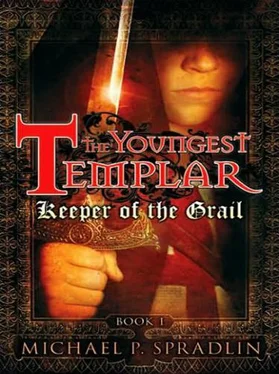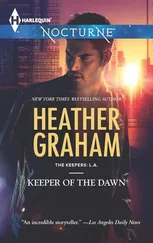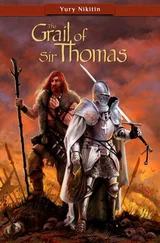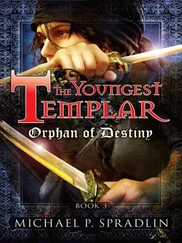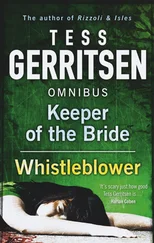Michael Spradlin - Keeper of the Grail
Здесь есть возможность читать онлайн «Michael Spradlin - Keeper of the Grail» весь текст электронной книги совершенно бесплатно (целиком полную версию без сокращений). В некоторых случаях можно слушать аудио, скачать через торрент в формате fb2 и присутствует краткое содержание. Жанр: Исторические приключения, на английском языке. Описание произведения, (предисловие) а так же отзывы посетителей доступны на портале библиотеки ЛибКат.
- Название:Keeper of the Grail
- Автор:
- Жанр:
- Год:неизвестен
- ISBN:нет данных
- Рейтинг книги:4 / 5. Голосов: 1
-
Избранное:Добавить в избранное
- Отзывы:
-
Ваша оценка:
- 80
- 1
- 2
- 3
- 4
- 5
Keeper of the Grail: краткое содержание, описание и аннотация
Предлагаем к чтению аннотацию, описание, краткое содержание или предисловие (зависит от того, что написал сам автор книги «Keeper of the Grail»). Если вы не нашли необходимую информацию о книге — напишите в комментариях, мы постараемся отыскать её.
Keeper of the Grail — читать онлайн бесплатно полную книгу (весь текст) целиком
Ниже представлен текст книги, разбитый по страницам. Система сохранения места последней прочитанной страницы, позволяет с удобством читать онлайн бесплатно книгу «Keeper of the Grail», без необходимости каждый раз заново искать на чём Вы остановились. Поставьте закладку, и сможете в любой момент перейти на страницу, на которой закончили чтение.
Интервал:
Закладка:
A King’s Archer? Here in the woods?
The bandits were silent. Their wounded companion struggled to his feet and had clearly lost his taste for thievery. He staggered past the leader of the group, howling like a wounded pig. In moments he had disappeared into the woods.
I kept my sword up and pointed toward the bandit closest to me.
“Very well,” the archer shouted from the woods behind us. “My arm grows weary. Perhaps I’ll just shoot you both and be done with it! The world could use two fewer bandits!”
It was not to be, however. The bandit closest to me ran, and I pivoted to face the leader. As I did so, I drew Sir Thomas’ battle sword from behind me, holding it in my right hand with the short sword in my left.
“Time to run,” I said.
As the bandit’s face grew more distinct in the gathering light, I could see a look of anger clouding his features. He had failed to rob an easy mark, and it did not sit well.
“I will see you again, squire of the Templars,” he muttered. But as he started to turn, an arrow whistled past my ear, taking the bandit’s hat off his head. I nearly laughed as I watched it land with a solid thud in the trunk of a tree ten paces beyond him. The bandit froze.
“If I see you,” the voice shouted, “the last thing you will see is my arrow, seconds after it pierces your chest, so I hope you’ll please me by making more idle threats. The King requires me to kill ten bandits a month, and so far I’m one short.”
But the bandit didn’t hear the last part. Losing his hat had clearly unnerved him. He disappeared into the woods before the last words of the archer had echoed off the trees.
My shoulders slumped and I felt myself go limp. I was angry with myself for walking so blindly into a trap, yet relieved at being alive. Remembering the archer with the itchy temperament behind me I sheathed both swords and looked in the direction of the voice, my hands empty and held out from my sides.
“Hello? Archer?” I said to the woods behind me. I still saw no one. “I thank you for your help!” I did not speak too loudly for who knew what other dangers these woods held? If there were three bandits nearby, there were likely thirty.
“Hello?” I said again. “Will you not come forward, so that I may thank you face-to-face?”
Then I saw him. From twenty paces away he stepped from behind a wild olive tree and walked to where I stood. He was taller than I but wore the colors of the King, and in his left hand he carried the traditional longbow made of yew. On his back sat a wallet full of arrows, the gray feathers riding above his head. He was thick through the arms and chest like most archers I had seen. His hair and face were fair in color. Close up I could see his features clearly, and was startled to see that he was young-my age, or perhaps a year or two older.
I extended my hand. “I owe you both thanks and my life,” I said. He cautiously looked at me, then took my hand, shaking it briefly. “My name is Tristan.”
“Robard,” he answered. “My name is Robard Hode, formerly of the King’s Archers.”
“If I may inquire, what brings you to these woods?” I asked.
“My conscription is over. I’m on my way back to England,” he replied.
And that is how I first met Robard Hode, born in Sherwood Forest near the shire of Nottingham.
19
Robard had traveled here from the south near Jerusalem. He did not know of the fall of Acre, which had been his destination. I told him that Acre was in the Saladin’s hands, and he agreed we could travel to Tyre together. When he asked me why I chose to travel at night, I explained to him that I carried dispatches for the Templars there, and dared not allow these documents to fall into the hands of the enemy. He accepted my explanation without much question.
I was grateful to have Robard and his bow as traveling companions. As before, we kept to the hills near the main road. At night we built no fires. Walking in the darkness we quietly exchanged the stories of our lives.
Robard was seventeen years old. His father owned a large farm near the shire of Nottingham. When King Richard took the throne and raised his army for the Crusades, he levied taxes on all the farmers of England. After a poor harvest two years before, Robard’s father had been unable to meet his burden. Those who could not pay were allowed to join the army or send a son in their stead to join the Crusaders. Robard joined the King’s Army, and after two years of service, his father’s debt was forgiven.
It was Robard’s father who first taught him to use the bow. And two years of nearly constant warfare had made him an exceptional archer. In the King’s Army he learned that an archer was only as good as his equipment. Before we slept each morning, Robard obsessively checked his bow for signs of wear or weakness. He studied and rechecked the hide strings that held the grip, a piece of wood fastened to the shaft. He removed every arrow from his wallet, checking the feathers and the points to make sure they were secure and sharp. Each morning, when it was light enough to see clearly, he would take several practice shots at a distant tree. Retrieving the arrows from the trunk, he checked them again, returning them to his wallet.
As we traveled, Robard told me much of his life and what he had witnessed during his years in Outremer.
“I’ve seen nothing but waste and destruction,” he complained. “The Lionheart”-Robard spat out the name as if something sour and unpleasant had landed on his tongue-“commands us to take a fortress or a city or a swatch of land, and we do. Then a few weeks or months later the Saladin’s forces take it back. Men are killed for nothing. Yet the King keeps raising his army and taking more taxes while poor men like my father struggle to feed their families.”
Robard was quietly intense, and when he spoke of his home and father and the struggles of the people of his shire, he became quite passionate. I sensed a great determination in him.
“What will you do when you return to England?” I asked when he finally paused in his rant against King Richard, the rich and the general inequalities of the known world.
“Go home, help my father farm. He’ll need it if this war goes on much longer. The rich barons easily pay their taxes to the King while poor folk go hungry, sending their sons to die here in this desert wasteland because they cannot pay.”
Robard was a bitter young man on the subject of the rich in general, the poor in particular and taxes especially. Though I was certainly no saint, I winced at his reference to the Holy Land as a “wasteland” and quietly crossed myself.
“I knew a man at home,” Robard went on, “a farmer, like my father, with seven children. After the poor harvest two years ago there wasn’t much in the way of food for such a large family. One day he went off into Sherwood Forest and killed a roebuck. On his way home he stumbled across a squad of bailiffs led by the shire reeve of Nottingham. As usual, the shire reeve and his men were out collecting taxes from poor farmers who couldn’t afford to pay them even if gold were to grow out of the ground like beans. They saw him with the buck and attempted to arrest him, saying he had no authority to hunt the King’s deer.”
Robard’s voice rose. I wished to quiet him, lest more bandits or, God forbid, the Saladin’s men heard us in the woods.
“But before they could grab him he escaped into the woods. As far as I know, he’s still there hiding out. All because he wanted enough meat to feed his children,” he said. “That is who I am forced to fight for. We serve an absent King who cares nothing for his subjects, only that they can send their sons to feed his army. He leaves his sniveling coward of a brother Prince John in charge, and that poor excuse for a monarch allows the shire reeves to rule the countryside like barons. Lionheart, my arse,” Robard said, spitting on the ground for emphasis.
Читать дальшеИнтервал:
Закладка:
Похожие книги на «Keeper of the Grail»
Представляем Вашему вниманию похожие книги на «Keeper of the Grail» списком для выбора. Мы отобрали схожую по названию и смыслу литературу в надежде предоставить читателям больше вариантов отыскать новые, интересные, ещё непрочитанные произведения.
Обсуждение, отзывы о книге «Keeper of the Grail» и просто собственные мнения читателей. Оставьте ваши комментарии, напишите, что Вы думаете о произведении, его смысле или главных героях. Укажите что конкретно понравилось, а что нет, и почему Вы так считаете.
